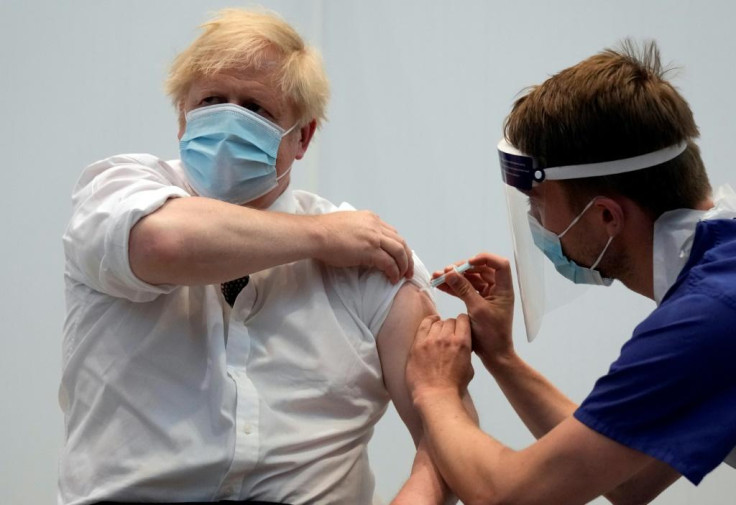England delays full lifting of virus restrictions
The government had hoped to allow crowds to return unrestricted to pubs and clubs next week, with the hard-hit hospitality industry warning it is on its last legs.
British Prime Minister Boris Johnson on Monday announced a four-week delay to the full lifting of coronavirus restrictions in England due to a surge in infections caused by the Delta variant.
The delay comes as a blow to Johnson's plans to fully reopen the UK economy on June 21 after months of gradually easing restrictions since March.
Newspapers had been counting down to what had been dubbed "Freedom Day", which was set to mark an end to all social distancing restrictions and the reopening of nightclubs.
But Johnson said a sharp rise in infections had prompted a decision to "ease off the accelerator" and focus instead on ramping up vaccinations.
"On the evidence I can see right now, I'm confident that we will not need more than four weeks and won't need to go beyond July 19," Johnson told a press briefing.
Health policy is devolved in the four nations that make up the UK, handled separately in England, Scotland, Wales and Northern Ireland.
Scotland, which was due to move to the lowest level of restrictions on June 28, is also expected to announce a delay to its reopening.
In England, most current rules -- including limits on the number of people who can meet in pubs and restaurants -- will remain in place until July 19, although restrictions on the number of guests allowed at weddings will be lifted.
Large scale pilot events, such as Euro 2020 football matches, will also go ahead as planned.
The more transmissible Delta variant, first identified in India, is now responsible for 96 percent of UK cases, and positive tests have jumped 50 percent in the last week.
Total reported cases are now at their highest since February -- around 8,000 new infections a day.
The Delta variant is believed to be around 60 percent more transmissible than the Alpha variant first identified in Kent, southeast England.

That strain forced the country to go into another three-month lockdown in January.
Nevertheless hospital admissions and deaths remain low, thanks in large part to Britain's rapid vaccination rollout.
More than 55 percent of adults in the UK have had two vaccine jabs.
Newspapers have hinted at dissent within Johnson's cabinet over the delay, with The Times citing an unnamed minister as saying it was "a very odd decision".
Johnson accepted that "we cannot simply eliminate Covid, we must learn to live with it," but added that "once the adults of this country have been overwhelmingly vaccinated... we will be in a far stronger position to... live with this disease".
The government hopes that two thirds of all adults will have received two shots by July 19.
A study released Monday found that two jabs of the Pfizer/BioNTech vaccine stopped the need for in-patient treatment in 96 percent of cases of the new variant.
With a double dose of the Oxford/AstraZeneca shot, the rate was 92 percent.
The government had hoped to allow crowds to return unrestricted to pubs and clubs next week, with the hard-hit hospitality industry warning it is on its last legs.
Trade association UKHospitality estimated that a month's delay in lifting the restrictions would cost the sector around ?3 billion ($4.23 billion) in sales.
"A full and final ending of restrictions is the only way to ensure that businesses in this sector can trade profitably," said its chief executive Kate Nicholls.
Copyright AFP. All rights reserved.
This article is copyrighted by International Business Times, the business news leader






















